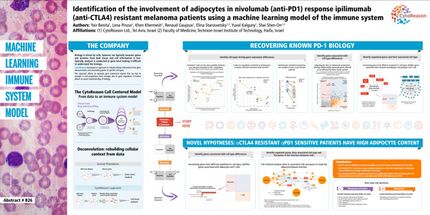Detecting the Genes That Contribute to Transplant Rejection
Scientists has been awarded a new federal research grant of more than $12 million for research work in this field
Advertisement
A group of physicians and scientists led by Associate Professor Daniel Salomon, M.D., of the Department of Molecular and Experimental medicine at The Scripps Research Institute, has been awarded a new federal research grant of more than $12 million over five years to apply cutting-edge genomic technologies to advance our understanding of kidney transplantation.
Under the auspices of this program project grant, titled "Genomics for Kidney Transplantation," Salomon and his colleagues will monitor several hundred patients who have had kidney transplant surgeries with technologies for gene expression profiling and proteomics, and several thousand transplant patients by complex trait genetics (for descriptions, see below).
One of the team's overall goals is to answer one of the most pressing problems in kidney transplantation: why do some patients do well after a transplant while others do not?
"Fifty percent of transplant patients lose their kidneys within eight to ten years," says Salomon. "[This project] will study some 2,400 patients with kidney transplants, and we will be looking at the genetic basis and control of why some patients do well and others have problems. In practical terms, this will involve advancing our understanding of what causes acute and chronic kidney injury."
The grant was funded by the National Institute of Allergy and Infectious Diseases (NIAID), part of the National Institutes of Health (NIH). Along with Salomon, the Transplant Genomics Collaborative Group includes Scripps Research Cell Biology Professor John Yates, and Steve Head, who is the director of the Scripps Research DNA Array Core Facility, among others. Other investigators on the grant include Steve Horvath, an assistant professor of human genetics and biostatistics at the University of California, Los Angeles; Pui-Yan Kwok, the Henry Bachrach Distinguished Professor of the Cardiovascular Research Institute and Faculty Director of the Genomics Core at the University of California, San Francisco; and Janet Warrington, Vice President for Clinical and Applied Genomics Research and Development at Affymetrix, Inc.
In addition to his laboratory work, Salomon is a transplant physician. He is the Co-Director of the Center for Organ and Cell Transplantation for Scripps Health at Scripps Green Hospital in La Jolla, and serves as director of the Core Laboratory for the Scripps Research General Clinical Research Center and co-director of its DNA Microarray Core-where some of the work on this project will be performed.




















































